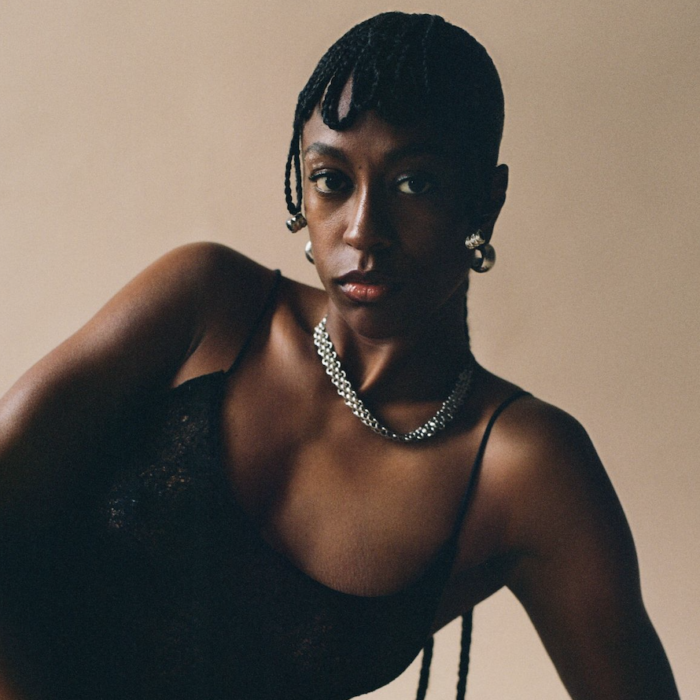

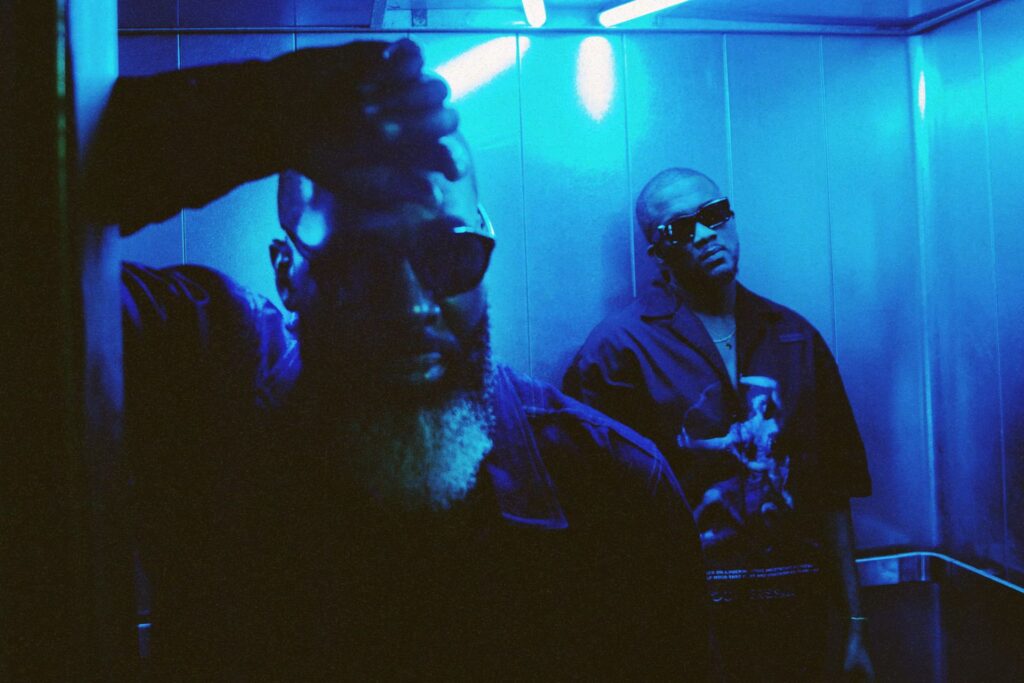
“When creating music, we always have our eyes on something that will stand the test of time,” Show Dem Camp rapper Ghost reveals. When we speak, the Nigerian rap duo is six albums, and multiple accolades, deep into their career. Neither Ghost nor Tec have much of anything to prove—they have been rapping circles around their peers for the last decade and are guardians of the alté scene. Still, with each new effort, Show Dem Camp adheres to a strong sense of intention to express their art, culture, skill set and hip-hop perspective.
Looking back, the pieces were always there for SDC to become Africa’s emblematic rap group: the lyrical prowess, hip-hop mentality, and a classic African sound. Their gradual rise, in and of itself, has been very evocative of hip-hop tradition—every step reconciling the hunger of their past with the feasting of their present.
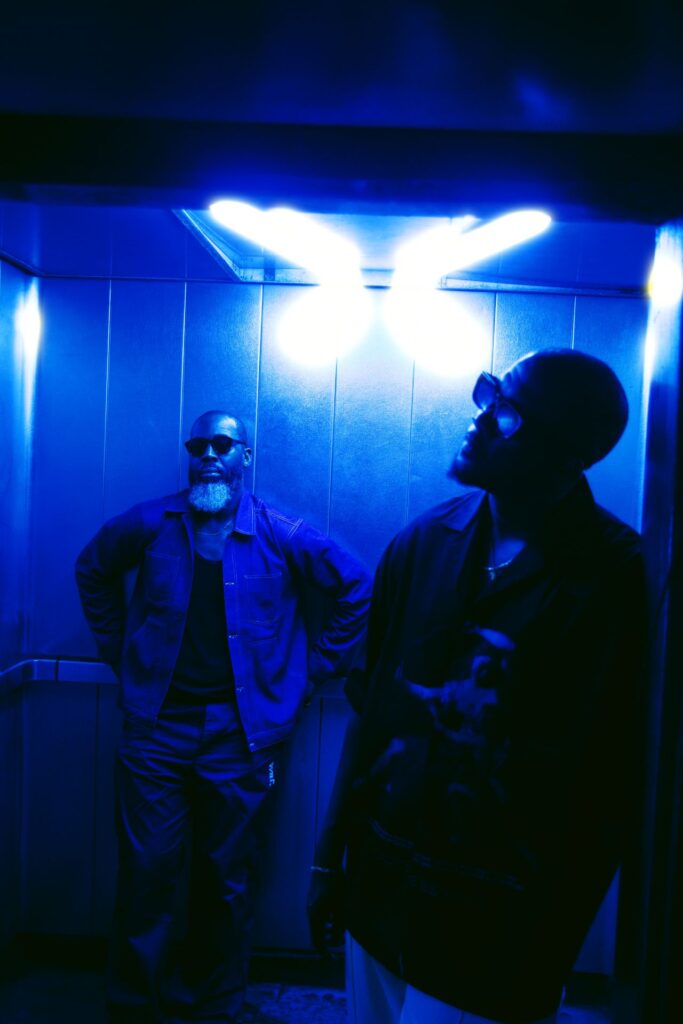
Rise of the underdogs
Show Dem Camp’s grassroots rise is an underground rap fan’s dream: the unfailing story of carving out a niche and prospering. The pair’s relationship stretches back to their uni days in the UK, when the rap hopefuls Wale Davies (Tec) and Olumide Ayeni (Ghost) faced off in a winner-takes-all battle—the results of which they still can’t agree on. Years later, early singles like “Feel Alright”, featuring Boj and a young Ladipoe, were more proof that the spark of their creative reunion was no fluke.
The 2010s saw a steady output of mixtapes and albums—“We’re definitely album artists,” Tec admits. Quietly, SDC were creating a catalog of classics that felt like the perfect response to the question, ‘What should African rap sound like?’ Collaborating with the who’s who of the alté scene, SDC’s profile was steadily rising adjacent to the limelight but never directly in it—but not for lack of talent or exposure. Where they differed from their more visible peers was their choice to sidestep conventional stardom and the inevitable artistic compromise that comes with it. Rather than chasing hits and clout, the rappers were invested in crafting bespoke worlds that suited not just their flow, but their entire style and ethos.
“Our music is just about opening a dimension of what African hip-hop could potentially sound like,” Tec explains over a call. “A lot of times, in Africa, we lean on sounds that come from the West; if it’s the trap era or the drill era, we lean on a lot of those popular sounds. That’s where our influences are from. Show Dem Camp, we’re Nigerian rappers, some of our influences are closer to home. So how do we fuse hip-hop with these influences and create something that sounds like home?”
A perfect pairing, Ghost’s gruff purr and silver-tongued Tec’s styles recall the glories of vintage New York rap without feeling derivative. While their dedication to the hip-hop form remains undiluted, their music is infatuated by the eternal truths of highlife, Afrobeat and alté—a hybrid they call “Palmwine music.” Throughout their catalog, Ghost and Tec’s reference points suggest a deeper understanding of this dynamic. They rap about bad break-ups and everyday struggles in Lagos with the same linguistic dizziness that others rap about gun-slinging and drugs. At its best, the world SDC creates is colourful and comical, like when they fashioned their 2022 album, Palmwine Music 3, after a fictional radio segment.
“Growing up, we’ve always loved hip-hop because it points to a timestamp of a moment, where people are at, where people are from, what they believe in,” Tec continues. “To us, our role is to paint a little bit of what our landscape looks like, what our hip-hop sounds like, what our hip-hop could sound like. All of the different sonics of our upbringing, we married them together to create something unique.”
Certainly, SDC weren’t the first artists to reinvent hip-hop on African terms. Yet, as African hip-hop ages, it’s still struggling to define its core integrity. And it’s somewhat stunning that even amid a career that eschews rap trends, SDC’s album run may represent a high-water mark of what the genre could strive to be.
The rappers’ charisma soon endeared them to an audience broader than the underground-heads who leapt at early cuts like “Tropicana” and “What You Want” (featuring Tomi Thomas). For the dedicated SDC fans, a new era was unfolding, where they could indulge in new levels of world-building from their favorite Nigerian rap savants.
“Maybe we were guilty of staying very regional for sometime as we were building,” admits Tec. “But then, our mindset really shifted to taking the music outside of Nigeria.”
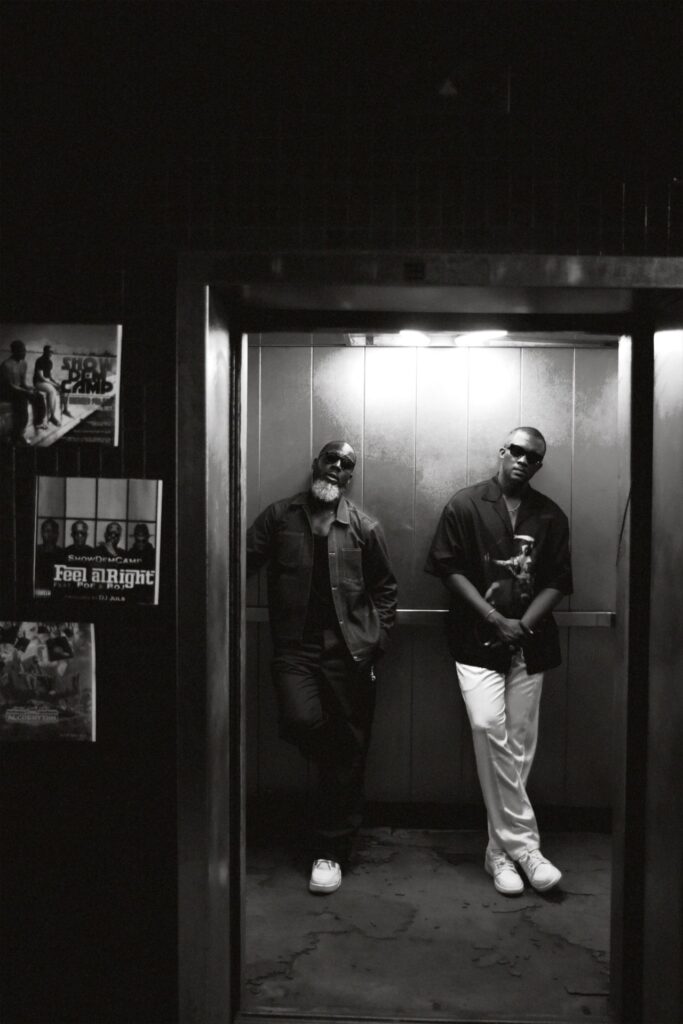
On the world’s stage
The next chapter in one of African rap’s most fruitful pairings was quite literally on a world stage. Ghost explains: “I think the work we’d put in had opened a few more doors which in turn fuelled the motivation to set new goals for ourselves.” In 2017, they turned their influence and underground grind into the PalmWine Festival. The first edition kicked off tentatively in Lagos’ Muri Okunola Park with a lineup of SDC’s friends, up-and- coming alté stars including Boj, Santi, Odunsi, Ladipoe, and a then-unknown Tems.
“The first ever PalmWine Fest, we would have been happy with 500 people showing up and I think close to 1,500 people showed up!” Ghost remembers. “PalmWine Fest was birthed by an actual need. Tec and I needed to find a way to showcase and express our creativity. And I think we realized that we’d made too many sacrifices, worked too hard not to benefit from the process of creating art, and in turn helping to enhance the culture that we love.”
Fortunately for SDC, their demographic was ready and waiting for a stage that would reflect their tastes. Within a few years, PalmWine Fest had filled venues and captured Africa’s buzzing music scene in cities like London and New York. “So many artists that people had viewed as left of center found this to be a home,” shares Tec. “I’m really proud of the community of fans and the community of artists that keep coming back.” While the festival series was a win for the culture, as intended—international stages, for us and by us—the duo didn’t expect just how much the event would invigorate their art as well.
In conversation, the rappers are especially coy about their new project, No Love In Lagos, a collaborative album with the Nigerian highlife duo The Cavemen. “One of the things that solidified this collaboration was when we played PalmWine Fest in London a couple years ago and The Cavemen were our live band,” Tec reveals. “So we kind of felt an experience of what it would be like for us to merge musically, and that was just within a few days of rehearsals.”
The resulting project sounds just as “freeing” and “organic” as its genesis. Tec describes writing the record during live jam sessions—no texting verses back and forth or DMing for features: “It was very much the way I really love creating music. And it wasn’t even something I had noticed that we had kind of moved away from. Obviously, we’re coming off the back of Covid, which meant that you had to work in silos anyway. So I didn’t even realise that was something we had been missing.”
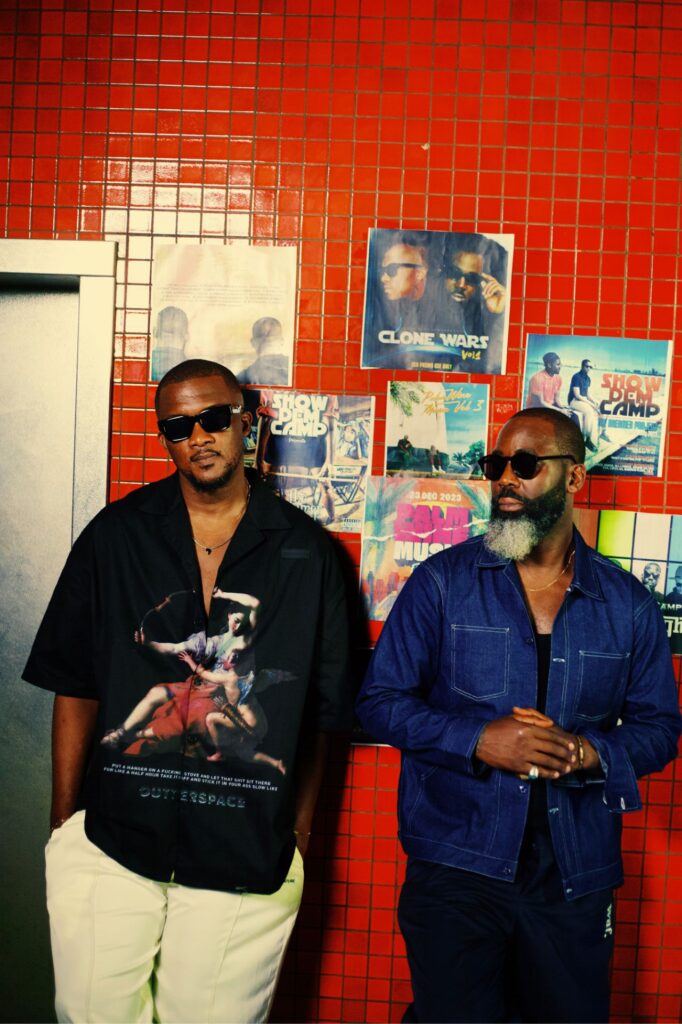
On to the next phase
It’s a joy to hear these two expand their comfort zones into each other’s orbit, finding ways to both affirm and broaden what they do best. At every turn, SDC has advocated staying true to one’s self and following creative curiosities, rather than allowing themselves to be defined by established, often narrow, perceptions. The two rap veterans are comfortable enough with their chemistry to continue prodding at their margins.
In the process, their vision has gotten more expansive: they’re fathers now, Davies is a well-known music exec who co-manages Tems, so being the greatest African rappers alive will no longer cut it. “Based on our ethos and our background, all the other ways we like to tell stories need to be as great as the music,” says the business-minded Tec.
SDC might be OGs but they’re still students of the game, constantly evolving. PalmWine Fest is likely just a taste of what they can accomplish together. “I would say this era of Show Dem Camp is certainly more seasoned, but still extremely experimental and open to new challenges,” says Ghost.
For the hyper-focused rap duo that conjured a new future for African rap, it seems our interview can only end with one question:
“How would I want Show Dem Camp to be remembered?” Ghost muses. “It would have to be as a group that always stayed true to ourselves creatively. I want to be remembered for the level of dedication, consistency and quality that we put into our art. Remember us as a group that challenged the status quo and gave back to the culture that we love… Yes, legacy is very important to us.”
Tec mulls this over. “I don’t look at it as legacy, I look at that as the facts.”
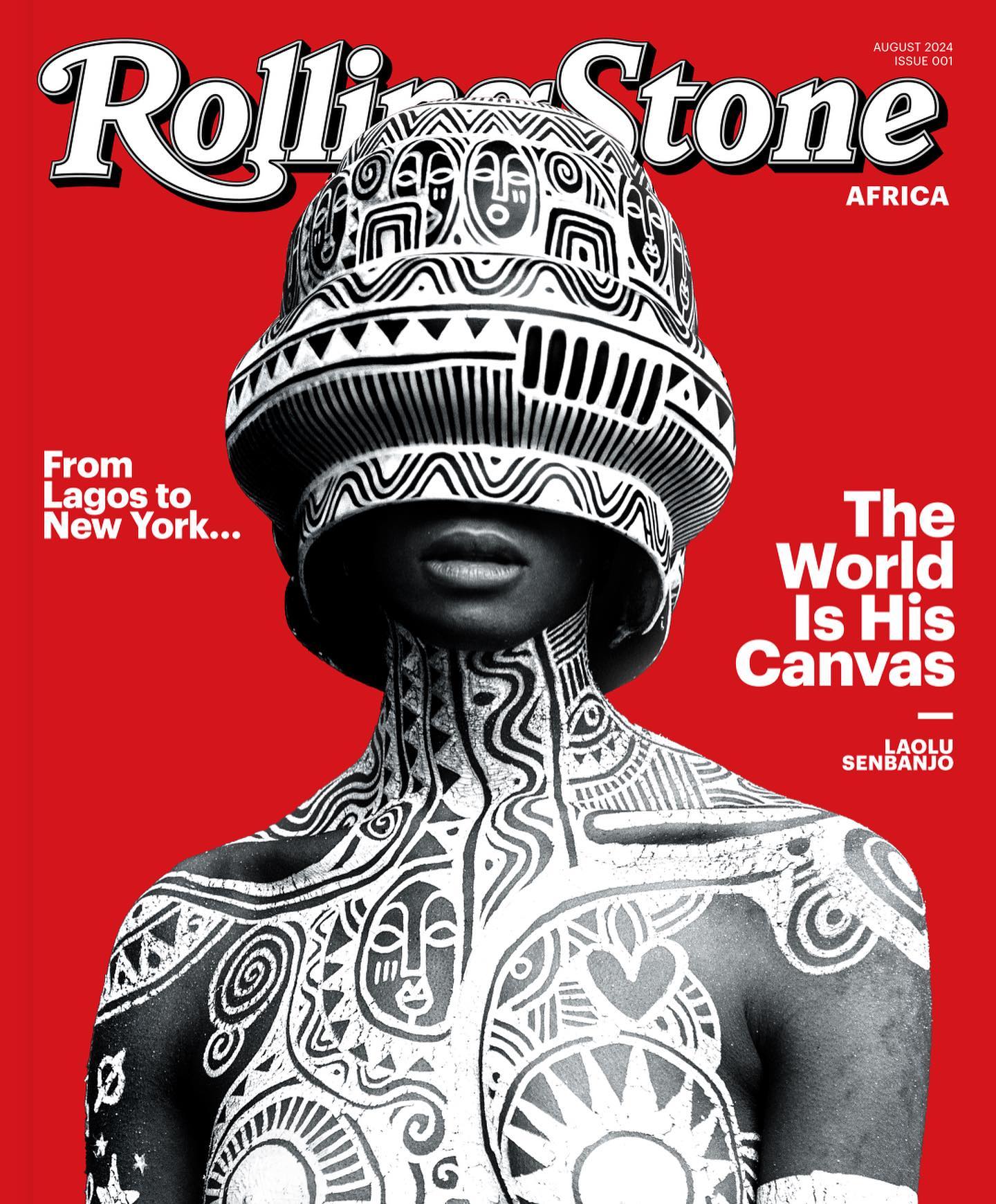
© Copyright Rolling Stone Africa 2024. Rolling Stone Africa is published by Mwankom Group Ltd under license from Rolling Stone, LLC, a subsidiary of Penske Media Corporation.
By providing your information, you agree to our Terms of Use and our Privacy Policy. We use vendors that may also process your information to help provide our services.
By registering for our sites and services, you agree to our Terms of Service (including, as applicable, the mandatory arbitration and class action waiver provisions) and our Privacy Policy.
We use vendors that may also process your information to help provide our services.
This site is protected by reCAPTCHA and the Google Privacy Policy and Terms of Service apply.
By providing your information, you agree to our Terms of Use and our Privacy Policy. We use vendors that may also process your information to help provide our services.